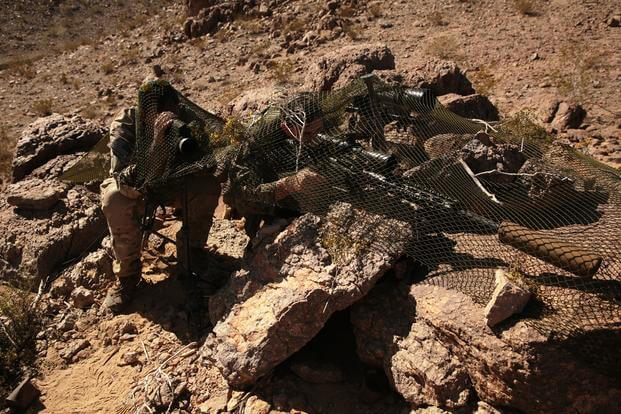To avoid an airstrike, the Russians could be told where the additional 250 U.S. Special Operations troops President Obama has ordered into Syria will be based, Pentagon officials said Monday.
Pentagon Press Secretary Peter Cook said the location in rebel-held northeastern Syria was not being disclosed publicly in a precautionary move, but he noted that Moscow was given the coordinates last year when the initial group of 50 U.S. advisers and trainers went into the area.
"In the past, we have identified, we did identify, a specific geographic area where we asked the Russians not to strike," Cook said. "We're not talking publicly with you all about where they're going," Cook told Pentagon reporters, and he declined to discuss current communications with the Russians, but "we're taking every step we can to preserve the safety of our personnel and limit the risk they face."
The 250 additional troops, who will go in with medical and logistics support, will be "in harm's way" but "the idea is that they will not be engaged in direct combat," Cook said. He also would not rule out that Defense Secretary Ashton Carter would order more U.S. troops into Syria and Iraq to speed the defeat of the Islamic State of Iraq and Syria. "We're not taking anything off the table," Cook said.
Sen. John McCain, an Arizona Republican and chairman of the Senate Armed Services Committee, said Obama's latest troop deployment was another example of what he has labeled "grudging incrementalism."
"The deployment of 250 additional U.S. military forces to Syria is a welcome development, but one that is long overdue and ultimately insufficient. Another reluctant step down the dangerous road of gradual escalation will not undo the damage in Syria," McCain said in a statement.
Before leaving Germany Monday on the last stop of an overseas trip that also took him the Saudi Arabia and Britain, Obama said that the initial 50 U.S. advisers sent into Syria had made progress with local Kuridsh and Arab forces in taking back territory from ISIS.
"Given the success, I've approved the deployment of up to 250 additional U.S. personnel to keep up this momentum," Obama said. Last week, Carter announced that 217 additional advisers and trainers were being sent to Iraq to "accelerate" the campaign to retake the ISIS stronghold of Mosul.
In a CBS-TV interview earlier this month, Obama essentially conceded that the plan to retake Mosul, and the self-proclaimed ISIS capital of Raqaa in northeastern Syria, would likely not happen before he leaves office, but he said that conditions for the fall of Mosul and Raqaa would be set by the end of the year.
Over the weekend, Joint Chiefs Chairman Gen. Joseph Dunford said that the Iraqi Security Forces (ISF) now had ISIS fighters in a "headlock" despite the stall in the Mosul offensive and infighting among anti-ISIS militias in Iraq.
"The momentum has swung" against ISIS, and "my experience tells me once you've got somebody in a headlock, you don't let them go," Dunford told reporters traveling with him in the Mideast.
"It's important that we keep pressure on them -- we keep pushing and pushing -- at whatever the pace is the Iraqis can sustain," Dunford said, but "It is their fight, it is their momentum."
The ISF had initial successes in the push north up the Tigris River valley past the oil refinery town of Baiji, but the offensive has sputtered to a halt near Makhmour, about 60 miles southeast of Mosul, where Marines from the 26th Expeditionary Unit have set up a fire base for four 155mm howitzers.
In a phone briefing to the Pentagon last Friday, Air Force Col. Pat Ryder, a U.S. Central Command spokesman, said that ISIS fighters had set up layered defenses to stop the ISF from advancing north of Makhmour.
Dunford rattled off a list of problems that the ISF must still overcome: "They know about the ammunition problems. They know about the shortfalls in training; they know about the manning levels and the leadership gaps; they know about maintenance and spare parts; they know they have to figure out how to sustain the fight from a logistics standpoint."
"They know this," Dunford said "But, they also now know that a problem is a problem and that they can be solved if they work together and work with us and work with the coalition."
Richard Sisk can be reached at Richard.Sisk@Military.com.






























